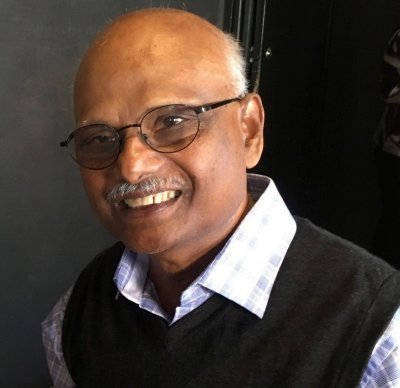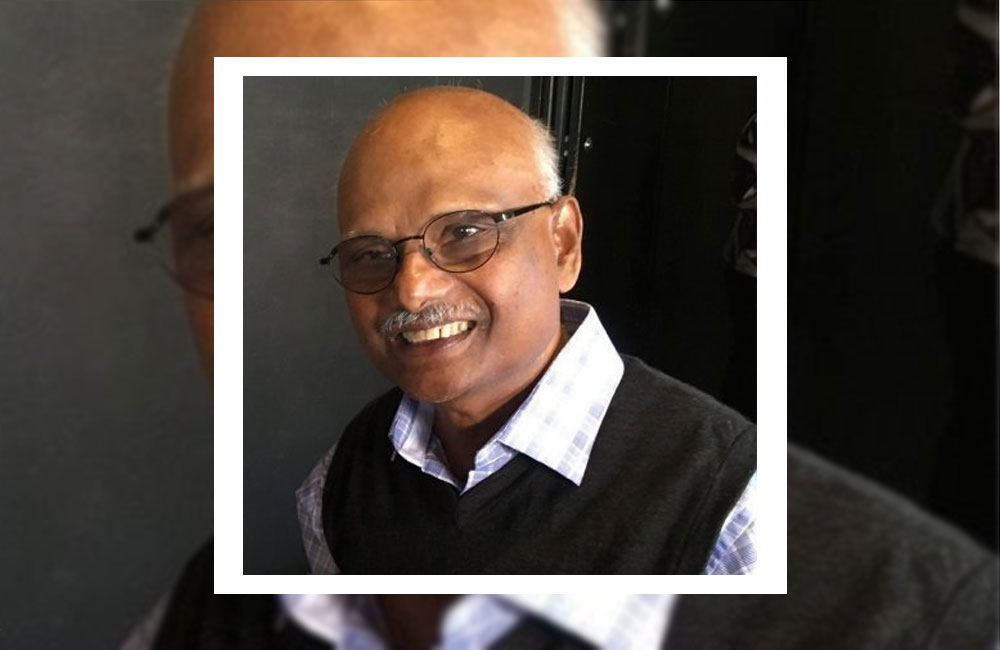A Leader, a Bridge-Builder, and a True Friend

It is with profound sorrow that we mark the passing of our dear friend, Mr. Kathir Ravichandra (Ravi), who left us on the morning of November 11 in Sydney, Australia, after a long battle with illness. His departure leaves a deep void in the hearts of all who knew him, a void that can only be filled by the memory of his grace, intellect, and unwavering commitment to his community.
Ravi and I shared a deep understanding of the struggles faced by the Tamil-speaking people of Sri Lanka since independence. I vividly recall the tragic events of July 1983: the violence, the fear, the injustice of the anti-Tamil pogrom. Ravi’s family, like so many others, bore immense suffering simply because of their ethnicity.
He migrated to Australia in 1982, carrying with him both the pain of loss and the determination to rebuild a life defined not by grievance, but by purpose. When I later moved to Canberra, Ravi was already a respected senior engineer with the ACT Government, later serving in the Federal Public Service. Beyond his professional accomplishments, he was an inspiring presence within the Tamil diaspora, one of the founding figures behind the Canberra Tamil Association, a platform that gave voice to Tamil Australians.
“He turned pain into purpose, and purpose into service.”
We had our differences of opinion, mine rooted in class-based politics, his in identity, but those differences never diminished our friendship. On the contrary, they enriched it. Ravi’s conservative upbringing and my socialist views often led to spirited debates, yet our mutual respect remained unshaken. We were, above all, bound by a shared hope for justice and peace in Sri Lanka.
Tensions had arisen within the Australia Sri Lanka Association (ASLA), as Tamil members sought recognition of the July 1983 atrocities, a request that was regrettably refused. Many Tamils, feeling unheard, left to form their own association, the Canberra Tamil Association (CTA). When peace talks between the Sri Lankan government and the Liberation Tigers of Tamil Eelam (LTTE), collapsed in April 1995, the reverberations were felt even in Australia.
It was during this time that conversations began, first at Mr. Mylvaganam Balasubramaniam’s home, then at Dr. Willie Senanayake’s, where about twenty Sinhala and Tamil expatriates gathered to imagine something new: how the diaspora community could assist formulating reconciliation measures by building a bridge across the ethnic divide. It was the seed of what became the Friends for Peace in Sri Lanka (FPSL), established later that year in Canberra.
The Forum’s mission was simple yet bold: to promote a just and lasting peace in Sri Lanka, acknowledging the legitimate aspirations of Tamil-speaking people while protecting the rights and security of all. We grounded our work in the principles of the United Nations Charter and international covenants on civil, political, and cultural rights.
Ravi joined us during those early years of the FPSL, when hopes were fragile and mistrust was rife. Many in the Tamil community viewed our cross-ethnic work with suspicion; yet Ravi persisted. Though he was closely connected to the LTTE-aligned Tamil lobby, he valued dialogue over dogma. He listened, questioned, and, more importantly, evolved.
His integrity and courage often placed him in difficult positions. On more than one occasion, Ravi’s cooperation with government officials or Sinhala colleagues drew criticism from hardliners. But he never allowed ideology to obscure humanity. For him, reconciliation was not a sign of weakness but an act of strength.
“He spoke with conviction, but also with compassion — and that made people listen.”
Together, we organised peace vigils, forums, and public meetings. One memorable event was the Peace Vigil of November 1995, attended by over a hundred Sinhalese, Tamil, Muslim, Burgher, and Australian participants — including diplomats and clergy. Ravi played a leading role in making it a success. Though some nationalists later accused us of celebrating the LTTE leader’s birthday (a coincidence none of us knew of at the time), Ravi handled the fallout with dignity and restraint.
In 1996, Ravi invited me to the “Peace with Justice” Conference in Canberra, co-organised by the Australasian Federation of Tamil Associations (AFTA) and the Australian Human Rights Foundation. Justice Marcus Einfeld was among the attendees. Ravi ensured that even the Sri Lankan High Commission received the conference papers, a small but significant gesture towards transparency and dialogue.
He was later elected Chairperson of AFTA, a role he fulfilled with humility and foresight. His belief in a political solution within a united Sri Lanka, one that respected Tamil identity and autonomy, set him apart. He saw federalism and devolution not as threats, but as pathways to coexistence.
I recall an incident in 1998 when Sri Lanka’s Minister of Housing and Construction, Mr. Indika Gunawardena, visited Canberra. Ravi, then a senior engineer, was scheduled to brief the Minister on ACT’s water and sewerage systems. The meeting was abruptly cancelled under political pressure from Colombo, simply because of Ravi’s Tamil identity.
Despite this humiliation, Ravi remained gracious. Later, when the Minister addressed a community meeting organised by FPSL and against the wishes of nationalist groups, Ravi attended respectfully. His conduct that day epitomised the quiet dignity with which he navigated life’s many contradictions.
Similarly, when Mr. Lakshman Kiriella and Foreign Minister Lakshman Kadirgamar visited Australia, Ravi continued to engage, even as the High Commission, under pressure from Sinhala extremists, sought to exclude him. He never retaliated in anger; instead, he held fast to dialogue and decency.
When Ravi first joined our efforts, he was an ardent supporter of Tamil Eelam. But through years of discussion and reflection, he came to see hope in a united Sri Lanka with devolved powers. This was not a renunciation of his Tamil identity — rather, it was an expansion of it. He believed that peace could only come when justice was shared and all communities were heard.
I recall his meeting with Mr. Anton Balasingham in London, where he tried to advocate this vision. He returned disillusioned — saddened that the LTTE leadership remained entrenched in the dream of separation. Yet even then, Ravi did not succumb to bitterness. He chose to work for unity, however distant it seemed.
Until I left Canberra in 2004, Ravi and I worked side by side — bound by friendship, purpose, and an unyielding hope for peace. When he later moved to Sydney, our contact became occasional but warm.
Two weeks before his passing, we spoke. Though gravely ill, Ravi’s voice carried the same optimism I had always known. He expressed his hope that the National People's Power (NPP) government would finally address the decades of Tamil suffering, paving the way for reconciliation and renewal. It was his final message of faith — in humanity, and in the possibility of a better Sri Lanka.
“Even in his final days, Ravi dreamed not of himself, but of peace for his people.”
Those of us who worked with him and many who only knew him by reputation will remember Ravi for his courage, diplomacy, and moral clarity. In times of deep division, he reached across boundaries that others dared not cross. He spoke softly but carried conviction. He believed that decency was the first step toward peace.
To his beloved wife Ranji, son Gajan, daughter Aalini, and all members of his family, we extend our heartfelt condolences at this time of bereavement.
Farewell, our dear friend. Your life was a bridge between peoples, between worlds, between what was and what might yet be.
You will be deeply missed and fondly remembered.
Lionel and Chitra Bopage, on behalf of the members of the Friends for Peace in Sri Lanka (FPSL) who associated with Ravi at the time
Dr Lionel Bopage
Melbourne, Australia – 13 November 2025

Leave your comments
Login to post a comment
Post comment as a guest